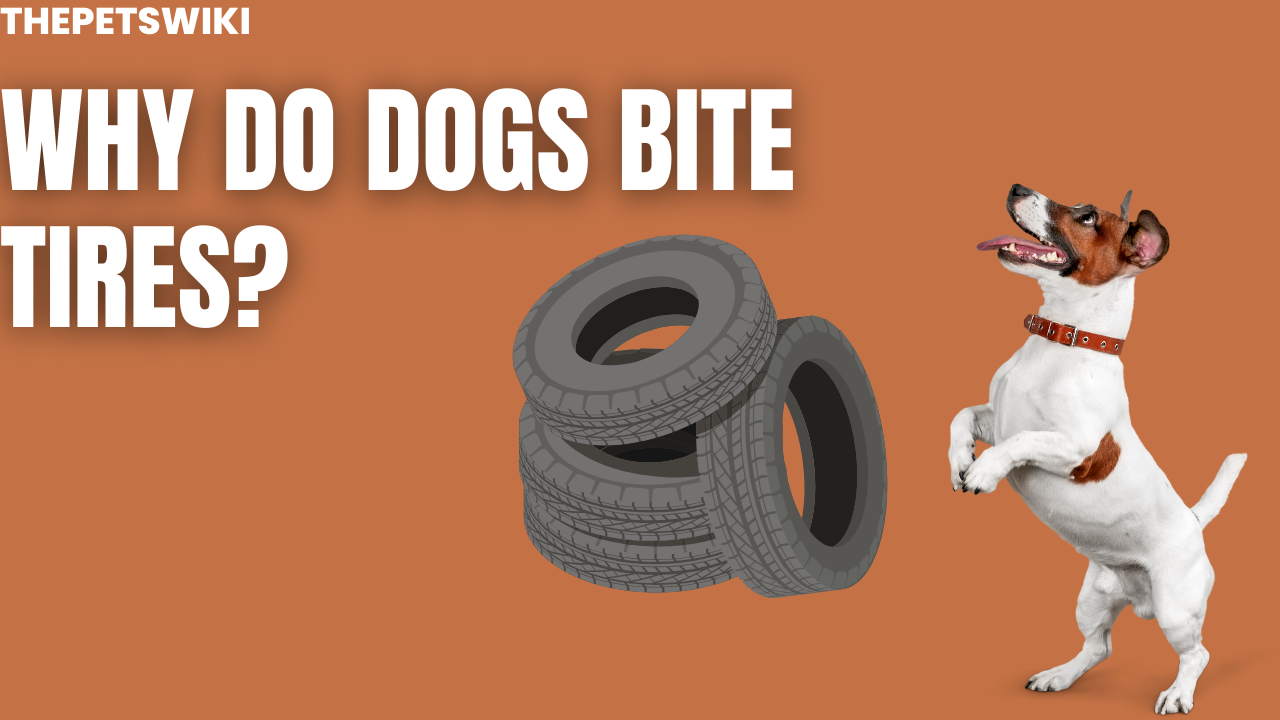Dogs are fascinating creatures with behaviors that often leave us intrigued. One such behavior that perplexes many dog owners is the tendency of their furry friends to bite tires. In this article, we dive into the reasons behind this peculiar behavior, shedding light on the instincts, habits, and environmental factors that contribute to a dog’s penchant for tire-biting.
Do Read: Exploring Canine Fear: Why Are Dogs Afraid of Balloons?
Canine Instincts: Unraveling the Roots
Dogs, descendants of wolves, carry innate instincts that can manifest in various behaviors. The act of biting is deeply rooted in their nature. Puppies, in particular, experience a teething phase where chewing becomes a natural coping mechanism. Tire-biting, therefore, might stem from an instinctive need to chew and alleviate discomfort during this developmental stage.
Boredom and Lack of Stimulation
Our canine companions thrive on mental and physical stimulation. When left without engaging in activities, dogs may resort to destructive behaviors to pass the time. Tire-biting can be a symptom of boredom, emphasizing the importance of providing ample opportunities for exercise and play.
Attention-Seeking Behavior
Dogs are social animals that crave attention from their human counterparts. Tire-biting can be a form of seeking attention, especially if the behavior is met with a reaction. Recognizing and addressing this attention-seeking aspect is crucial for modifying the behavior effectively.
Teething Troubles
Teething is a challenging phase for puppies, and they often seek relief through biting. If appropriate chew toys are not provided, they may turn to unconventional items, like tires, for comfort. Understanding and accommodating this natural behavior is key to managing tire-biting during the teething phase.
Positive Reinforcement Training
Addressing tire-biting requires a proactive approach. Positive reinforcement, such as rewarding good behavior with treats or praise, can be a powerful tool in discouraging undesirable habits. Consistent training with a focus on positive reinforcement helps dogs associate good behavior with positive outcomes.
Redirecting Undesirable Behaviors
To redirect a dog’s attention from tires to appropriate chew toys, strategic placement, and encouragement are necessary. Consistency is paramount in reinforcing the idea that biting toys is encouraged while tire-biting is discouraged. Patience and repetition are key components of successful behavior modification.
Addressing Aggression
While tire-biting is often a playful behavior, it can occasionally escalate into aggression. Dog owners need to distinguish between the two and seek professional help if aggression is observed. Understanding the signs of aggression ensures a safe and harmonious environment for both the dog and its owners.
The Burstiness of Canine Behavior
Dogs are known for their bursty, spontaneous behavior. Acknowledging and embracing this aspect of their nature can aid in managing and appreciating their lively antics. Incorporating short bursts of playtime and exercise into their routine helps channel their energy positively.
Tire Safety and Dog-Proofing
Ensuring the safety of both dogs and tires involves a twofold approach. First, providing safe and durable chew toys addresses the dog’s need to bite. Second, dog-proofing the environment by securing tires prevents potential harm and keeps the dog engaged with appropriate items.
Conclusion
In conclusion, the mystery behind why dogs bite tires is multifaceted. Understanding the roots of this behavior—from teething and boredom to attention-seeking—empowers dog owners to address it effectively. Through positive reinforcement, redirection, and a keen awareness of canine instincts, tire-biting can be modified, creating a harmonious relationship between dogs and their human companions.
FAQs
Q1: Is tire biting harmful to dogs?
A1: Tire biting can be harmful if not addressed, leading to dental issues or ingestion of harmful materials.
Q2: Can all dog breeds exhibit tire-biting behavior?
A2: Yes, though the frequency may vary. It is more common in certain breeds.
Q3: How can I train my dog to stop biting tires?
A3: Positive reinforcement, providing proper chew toys, and consistent training are effective methods.
Q4: When should I seek professional help for my dog’s behavior?
A4: If the behavior is aggressive or persistent, consulting a professional dog trainer or behaviorist is recommended.
Q5: Are there specific breeds more prone to tire biting?
A5: While any breed can exhibit this behavior, working and herding breeds may be more prone due to their instincts.


